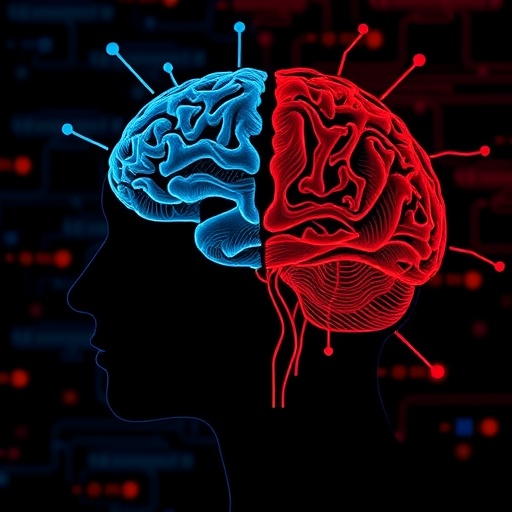In a groundbreaking study published in Discover Mental Health, researchers Fatokun, Uwishema, and Mugisha delve into the intricate web of mental health issues faced by individuals living with HIV/AIDS. This comprehensive analysis reveals a concerning trend where psychiatric comorbidities frequently overlap with neurological disorders in this vulnerable population. The complexity of these comorbidities not only challenges the clinical management of HIV/AIDS patients but also underscores the necessity for integrated healthcare approaches that address both mental and physical health.
As the researchers articulate, the coexistence of psychiatric disorders in HIV-positive individuals is alarmingly high. Conditions such as depression, anxiety, and substance use disorders are prevalent, exacerbated by the stigma and discrimination often associated with the virus. These mental health challenges result in poorer health outcomes, impacting adherence to antiretroviral therapy, and ultimately leading to increased morbidity and mortality among patients. The emotional burden of being diagnosed with HIV, coupled with societal prejudices, creates a perfect storm for psychiatric issues.
Furthermore, the study highlights the significant overlap between HIV/AIDS and neurological disorders. Many individuals living with the virus experience cognitive impairments and neurocognitive disorders, such as HIV-associated neurocognitive disorder (HAND). These neurological complications can manifest as memory loss, attention deficits, and psychomotor slowing, significantly impairing the quality of life for these individuals. Understanding the bidirectional relationship between HIV and neurological complications is crucial for developing effective treatment strategies that encompass the full spectrum of the patient’s health.
The biological mechanisms underlying these comorbidities are complex. The researchers point out that the HIV virus itself can directly affect the brain, leading to inflammation and neurotoxicity. This neuroinflammation can contribute to both psychiatric disorders and neurological decline. Additionally, the side effects of antiretroviral medications can exacerbate mental health issues, further complicating the treatment landscape for healthcare providers. It is imperative that clinicians recognize the signs of mental health disorders in HIV patients to provide comprehensive care that meets their psychological and physical needs.
Yet, despite the pressing need for integrated care, mental health issues in HIV/AIDS patients often go undiagnosed and untreated. The study calls for routine mental health screenings in clinical settings for these patients, as early identification and intervention are crucial for improving outcomes. By fostering an integrated approach, healthcare systems can ensure that mental health services are as readily accessible as physical health services for those living with HIV/AIDS.
Moreover, the researchers emphasize the need for psychoeducation for both patients and healthcare providers. Individuals living with HIV should be empowered with knowledge about their condition and the importance of mental health in overall wellness. Healthcare providers must also be trained to recognize the signs of psychiatric comorbidities, ensuring that they can provide holistic care that addresses both mental and physical health needs.
The implications of this research extend beyond clinical practice. Public health initiatives must be designed to reduce stigma around HIV and mental health concurrently. Creating a supportive environment where individuals feel comfortable seeking help is essential for improving mental health outcomes. Community-based programs and campaigns can play a pivotal role in fostering awareness and understanding, ultimately leading to better health outcomes for those affected.
As the study concludes, the intersection of psychiatric comorbidities and neurological disorders in HIV/AIDS patients presents significant challenges that require immediate attention. It is crucial for researchers, clinicians, and policymakers to work collaboratively towards developing comprehensive care models that integrate mental and physical health services. This integrated approach has the potential to vastly improve the quality of life and health outcomes for individuals living with HIV/AIDS, ensuring that their care is as multifaceted as their needs.
The urgency of addressing these psychiatric comorbidities cannot be overstated, as the mental health of HIV-positive individuals directly impacts their treatment adherence and overall prognosis. With one in four individuals living with HIV experiencing significant psychiatric symptoms, it’s clear that addressing mental health must be a priority within the broader healthcare agenda. Collaborative care models, which incorporate mental health specialists into HIV treatment teams, can pave the way for more holistic care.
The path forward begins with awareness and education. Stakeholders from various disciplines must unite to advocate for better mental health resources for HIV patients. By prioritizing mental health, we not only enhance the quality of treatment for HIV but also drive down healthcare costs associated with unmanaged comorbidities. The integration of mental health services into standard care for HIV/AIDS patients is not merely beneficial; it is essential for delivering comprehensive, patient-centered care that recognizes the complexity of living with this chronic condition.
In conclusion, the study by Fatokun et al. serves as a clarion call to action. It emphasizes the critical need to acknowledge and address the mental health challenges faced by individuals living with HIV/AIDS. By promoting an integrated approach to health that considers both psychiatric and neurological facets, we can significantly enhance the overall well-being of these individuals. As we move forward, let us remain steadfast in our commitment to developing innovative strategies that put mental health at the forefront of HIV/AIDS care, ultimately fostering a healthier society for all.
Subject of Research: Psychiatric comorbidities and overlapping neurological disorders in HIV/AIDS patients.
Article Title: Psychiatric comorbidities in HIV/AIDS patients and its overlap with neurological disorders.
Article References:
Fatokun, B.S., Uwishema, O., Mugisha, N. et al. Psychiatric comorbidities in HIV/AIDS patients and its overlap with neurological disorders.
Discov Ment Health 5, 165 (2025). https://doi.org/10.1007/s44192-025-00308-0
Image Credits: AI Generated
DOI:
Keywords: HIV/AIDS, psychiatric comorbidities, neurological disorders, mental health, integrated care.




